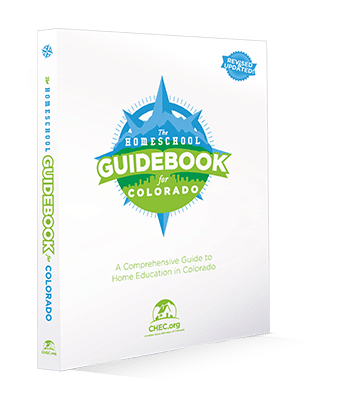by Shari McMinn
July and August are typically the months when most homeschool parents plan for their students’ new school year, which often begins in September. Perhaps you have already started thinking about your student’s needs and are in a quandary about what curriculum would be the best fit for him or her.
Do not be anxious about anything, but in everything by prayer and supplication with thanksgiving let your requests be made known to God. And the peace of God, which surpasses all understanding, will guard your hearts and your minds in Christ Jesus (Philippians 4:6-7).
Are you starting to feel concerned about making the right decisions this time around, especially if you are homeschooling a unique learner? You’re not alone! God wants to relieve you of this burden and give you guidance when you turn to Him first.
Quick Links
Go First to God for Help with Homeschooling Your Unique Learner
The above Scripture passage is one of my favorites. It was my “go-to” verse when I was homeschooling, and it still remains the one that I recall most frequently when I pray for my now-grown homeschooled children and my grandchildren. I encourage you to memorize it — or perhaps another one of your favorites — so you can recall God’s Word when the days are long and the struggles are real for homeschooling your children, especially unique learners.

I firmly believe that God Almighty wants us to go to Him for everything through prayer, submitting ourselves to Him, and remaining thankful in both the easy and the hard times. When we do, He will give us peace, and He will guard our hearts and minds by the saving grace of knowing Christ as our Savior and Lord.
In the past, you may have tried certain teaching strategies with your children, but not all of them have worked — or no longer work — with your unique learner(s). God created your child just as He saw fit and put him or her in your family for His sovereign reasons. He is the One to whom you should turn first and foremost to solve the puzzle of your child’s learning abilities or disabilities.
That problem-solving is sometimes more confounding than correctly aligning 84 squares on a Rubik’s Cube, more exasperating than diagramming a run-on sentence, and more difficult than solving a complex calculus formula! If you hate both math and English, then you probably want to give up and let someone else handle it, right? So, let God handle it! He can guide, inform, and show you the way — perhaps with a bit of outside help — but you can do this thing called homeschooling, and you can do it well.
Homeschooling Methodologies and Your Unique Learner
- Charlotte Mason: The late British educator’s gentle yet rich educational approach — focusing on living books, nature study, narration, and short lessons — works well for unique learners. For highly gifted students who can work on their own, they can do much of their learning self-directed; for struggling students, parents can be very involved in working with each one; for large families, this is a good multi-age approach.
- Eclectic: A bit of everything! This is what most veteran homeschool parents end up doing; I know it worked well for my family after about 5 years into homeschooling when I understood what resources were available, what worked for our one-room schoolhouse as a whole, and what was effective individually for each student.
- Hands-on: Using manipulatives from curriculum publishers or a homeschool family’s own supplies, this type of learning is effective for students who have a hard time sitting still, lack focused attention during traditional textbook or workbook learning, and seem to learn best by using their hands and bodies. Arts and crafts projects linked to unit studies, kitchen science experiments, math manipulatives, tinkering with tools, and using fidget toys during family read-alouds are just a few of the many ways homeschool parents can “work with the wiggle” of their students.
- Multi-age unit studies: These work well for larger families with a variety of different learning styles and interests. Each study can be taught to the whole family, with students completing work at their own pace and ability; art, field trips, music, and special events can be incorporated.
- Online: This works well for a tech-savvy student who is very focused; however, it should not be relied on totally for all learning, as the student needs to develop personal relationships with his or her teaching parent(s), other family members, and friends in homeschool support or enrichment groups.
- Traditional textbook: For children who can read early on and are willing to use books to gain knowledge, this type of methodology works well; alternatively, parents of non-readers can read aloud textbooks to their students. These are generally very grade-specific, but for gifted students, higher-level texts can be used. Conversely, for delayed students, lower levels work well.
- Unschooling, Wild & Free: This is an unstructured, child-directed type of homeschooling. Although it works well for encouraging creative play and exploration, unique learners often need a bit more structure for the 3 R’s of reading, ‘riting, and ‘rithmetic. For families living rurally, this allows for lots of physical activity outside in nature, time spent in treehouses, or other play activities.
Curriculum Publishers Can Help You Homeschool Your Unique Learner

Most curriculum publishers have veteran homeschool parents on staff for free consultations to help you understand how their methodology might be the right fit for your child who has unique learning needs. Whether your student is highly gifted, cognitively delayed, or just a confusing puzzle of struggles and lack of motivation, talk to an expert on the phone or in person to discuss your needs.
Also, most publishers have websites where you can either “see inside” their resources or download free samples. Try out a few of these that you have not experimented with before, and see if your student responds positively to a different type of curriculum.
If a sample seems like it might work, purchase a specific grade level and subject, and try it for at least a month or so. If it works, keep using it; if not, consider switching it out so your child does not “burn out.”
Curriculum publishers that worked for my family and have a proven track record with homeschooled students for at least a decade or more include:
- Abeka (traditional textbooks; we used for geography, health, history, and science)
- ACE School of Tomorrow (consumable worktexts; we used for math and English)
- BJU Press Homeschool (traditional textbooks; we used for high school enrichment subjects of speech and theatrical performance)
- CHEC US & Colorado Civics (hands-on, multi-age textbook; we used for Colorado history and US civics)
- Generations (unit studies; we used for Bible and science; I also wrote some of their elementary-level Bible and history workbooks)
- YWAM Publishing (biographies; we used these for Charlotte Mason method read-alouds)
I personally know families who have successfully used two other curriculum publishers — whose primary authors homeschooled their own unique learners. These include:
- Demme Learning (hands-on; their Math-U-See and Spelling-U-See are particularly geared toward unique learners; Steve Demme developed this, in part, to homeschool his son with Down syndrome)
- Simply Charlotte Mason (their multi-age, read-aloud Charlotte Mason method curriculum works well for families with many types of learners; Sonya Shafer used her company’s curriculum to homeschool her children, including her daughter with special needs)

CHEC Can Help You Successfully Homeschool Your Unique Learner
Whether your family is a member of the CHEC Independent School or chooses to comply with the Colorado Homeschool Law in another way, our team at Christian Home Educators of Colorado is here to come alongside families like yours. We want to provide you with the encouragement and equipping that you need to succeed in your homeschooling journey. This blog is just one of many resources found on our CHEC.org Unique Learners’ Resources Page.
If you haven’t already, order recordings from the 2025 Rocky Mountain Homeschool Conference of two Unique Learners workshop speakers who represent curriculum publishers: Steve Demme and Sonya Shafer.
Next Month’s Unique Learner Blog
My next Unique Learner blog, “Groups and Resource Centers,” will be posted on August 27, 2025 (the 4th Wednesday).
Shari McMinn, your trusted homeschooling friend
P.S. If you have a topic I should write about, please email me with your suggestion(s). This blog is for you!






0 Comments